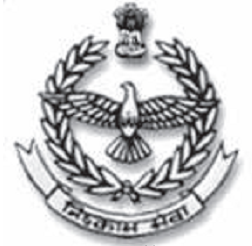Home guard




Home Guard
The term "Home Guard" refers to various military organizations established to defend the home territory of a nation, particularly during times of war or national emergency. These forces are typically composed of volunteers who are not part of the regular armed forces but are trained to perform defensive duties within their own localities.
History[edit]
The concept of a Home Guard has been utilized by several countries throughout history, often during periods of conflict when the regular military forces are engaged elsewhere. The most notable example is the British Home Guard during World War II.
British Home Guard[edit]
The British Home Guard, originally known as the Local Defence Volunteers (LDV), was formed in 1940 during World War II. It was established in response to the threat of German invasion following the fall of France. The Home Guard was composed of volunteers who were ineligible for regular military service, either due to age or reserved occupations.
The primary role of the British Home Guard was to act as a secondary defense force, supporting the regular army by guarding key points such as factories, airfields, and communication lines. They were also tasked with observing and reporting enemy movements and engaging in guerrilla warfare if necessary.
The Home Guard was disbanded in 1945 after the end of World War II, having played a crucial role in the defense of Britain during the war.
Other Examples[edit]
Other countries have also established similar forces, often under different names. For example, the United States had the "State Guard" or "State Defense Forces" during World War II, which served a similar purpose.
Organization and Structure[edit]
Home Guard units are typically organized at the local level, with each unit responsible for the defense of its own area. The structure of these units can vary significantly depending on the country and the specific needs of the region.
In the British Home Guard, units were organized into battalions and companies, with a command structure similar to that of the regular army. Members were often equipped with surplus military equipment and received training in basic military tactics and weapons handling.
Roles and Responsibilities[edit]
The primary responsibilities of a Home Guard unit include:
- Local Defense: Protecting key infrastructure and strategic locations within their area.
- Observation and Reporting: Monitoring for enemy activity and reporting any sightings to the appropriate authorities.
- Support to Regular Forces: Assisting the regular military forces in defensive operations.
- Civil Defense: Providing assistance to civilian authorities in times of emergency, such as natural disasters or civil unrest.
Training and Equipment[edit]
Training for Home Guard members typically includes:
- Basic military tactics
- Weapons handling and marksmanship
- First aid and emergency response
- Communication and signaling
Equipment for Home Guard units is often limited to what is available locally or provided by the government. This can include small arms, uniforms, and basic field gear.
Legacy and Impact[edit]
The legacy of the Home Guard is one of community involvement and national defense. These units have often been credited with boosting morale and providing a sense of security to the civilian population during times of crisis.
The concept of a Home Guard continues to be relevant today, with many countries maintaining similar forces as part of their national defense strategy.
Also see[edit]
Ad. Transform your life with W8MD's Budget GLP-1 injections from $49.99


W8MD offers a medical weight loss program to lose weight in Philadelphia. Our physician-supervised medical weight loss provides:
- Weight loss injections in NYC (generic and brand names):
- Zepbound / Mounjaro, Wegovy / Ozempic, Saxenda
- Most insurances accepted or discounted self-pay rates. We will obtain insurance prior authorizations if needed.
- Generic GLP1 weight loss injections from $49.99 for the starting dose of Semaglutide and $65.00 for Tirzepatide.
- Also offer prescription weight loss medications including Phentermine, Qsymia, Diethylpropion, Contrave etc.
NYC weight loss doctor appointmentsNYC weight loss doctor appointments
Start your NYC weight loss journey today at our NYC medical weight loss and Philadelphia medical weight loss clinics.
- Call 718-946-5500 to lose weight in NYC or for medical weight loss in Philadelphia 215-676-2334.
- Tags:NYC medical weight loss, Philadelphia lose weight Zepbound NYC, Budget GLP1 weight loss injections, Wegovy Philadelphia, Wegovy NYC, Philadelphia medical weight loss, Brookly weight loss and Wegovy NYC
|
WikiMD's Wellness Encyclopedia |
| Let Food Be Thy Medicine Medicine Thy Food - Hippocrates |
Medical Disclaimer: WikiMD is not a substitute for professional medical advice. The information on WikiMD is provided as an information resource only, may be incorrect, outdated or misleading, and is not to be used or relied on for any diagnostic or treatment purposes. Please consult your health care provider before making any healthcare decisions or for guidance about a specific medical condition. WikiMD expressly disclaims responsibility, and shall have no liability, for any damages, loss, injury, or liability whatsoever suffered as a result of your reliance on the information contained in this site. By visiting this site you agree to the foregoing terms and conditions, which may from time to time be changed or supplemented by WikiMD. If you do not agree to the foregoing terms and conditions, you should not enter or use this site. See full disclaimer.
Credits:Most images are courtesy of Wikimedia commons, and templates, categories Wikipedia, licensed under CC BY SA or similar.
Translate this page: - East Asian
中文,
日本,
한국어,
South Asian
हिन्दी,
தமிழ்,
తెలుగు,
Urdu,
ಕನ್ನಡ,
Southeast Asian
Indonesian,
Vietnamese,
Thai,
မြန်မာဘာသာ,
বাংলা
European
español,
Deutsch,
français,
Greek,
português do Brasil,
polski,
română,
русский,
Nederlands,
norsk,
svenska,
suomi,
Italian
Middle Eastern & African
عربى,
Turkish,
Persian,
Hebrew,
Afrikaans,
isiZulu,
Kiswahili,
Other
Bulgarian,
Hungarian,
Czech,
Swedish,
മലയാളം,
मराठी,
ਪੰਜਾਬੀ,
ગુજરાતી,
Portuguese,
Ukrainian
